
- Sustainable Planet -
- 5mins -
- 353 views
Dutch fishermen caught a record 756 metric tons of trash from the sea
Dutch fishing vessels removed 756,000 kilos of litter from the sea last year, breaking the record set in 2020 when 644,000 kilograms of waste were fished out of the water.
Dutch fishers catch a record 756 tons of litter from the sea
Dutch fishing vessels removed 756,000 kilos of litter from the sea last year, breaking the record set in 2020 when 644,000 kilograms of waste were fished. This is apparent from the annual report of the association KIMO Netherlands and Belgium, an organisation of coastal municipalities that strives for a cleaner sea with the Fishing for Litter project. Through this project, fishermen collect litter that ends up in their nets. The waste is taken to land, where it is removed and processed.
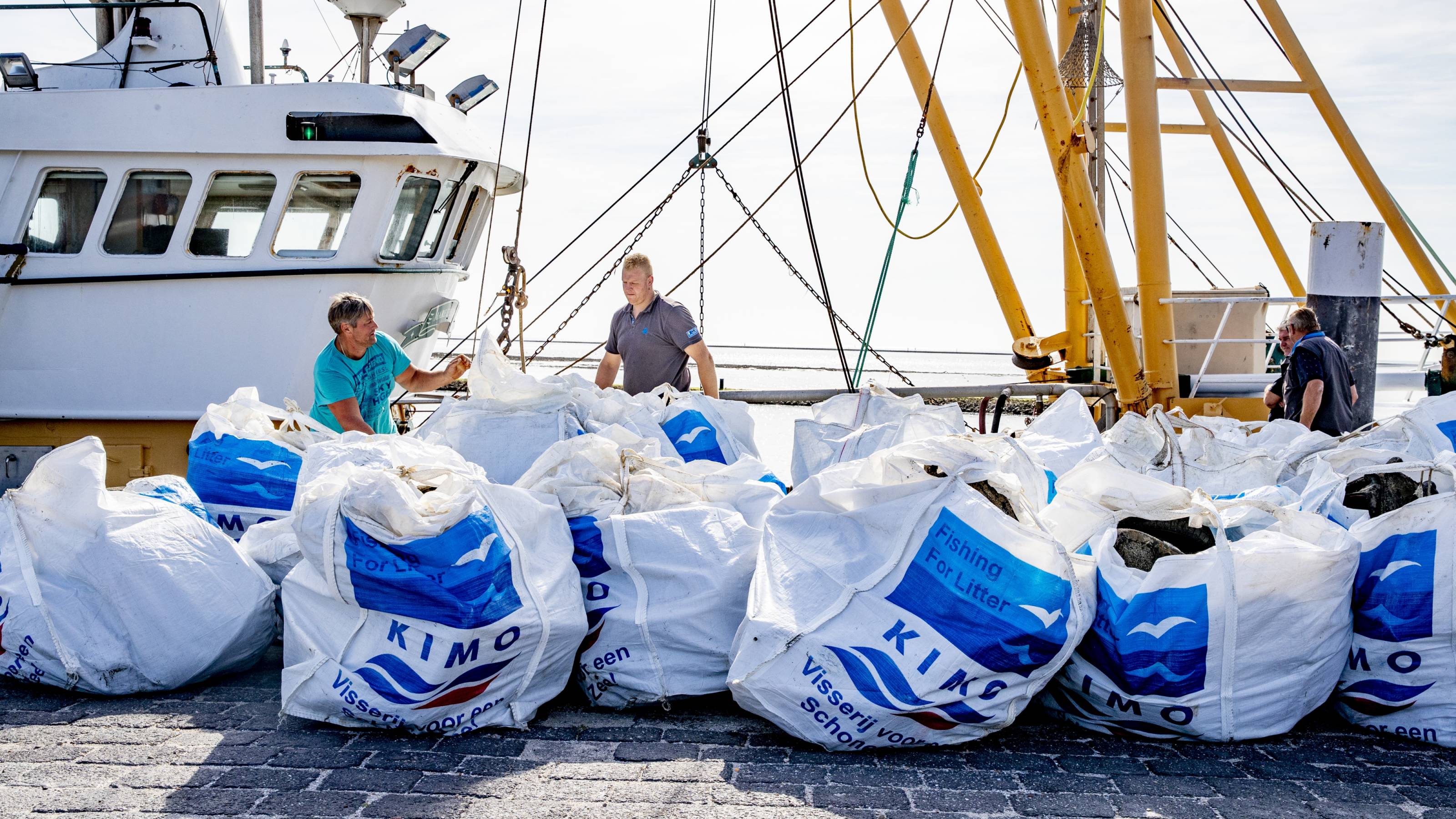
record catch can be explained by several factors
According to KIMO Netherlands and Belgium, since the start of the project in 2001, never before has so much litter been removed from the water in one year. Emergency transports were even necessary to provide the ports with ‘big-bags’, special bags in which the waste could be removed. "The ports went through their stock bags faster because of the large amounts of landed waste," the association wrote.
According to Mike Mannaart of the association, the record catch can be explained by several factors. For example, more fishermen are participating in the campaign. The ban on pulse fishing has also had an impact. "Fishermen are using ‘normal’ nets again and they get more stuff from the sea," he explains. "But the container disaster with the MSC Zoë in 2019 also plays a role."
In 2019, a record amount of waste was also fished out of the sea: 558,325 kilos of litter. Most of this was collected by fishing vessels in Harlingen, about 176,600 kilos, Omrop Fryslân wrote at the time.
Source: NOS.nl
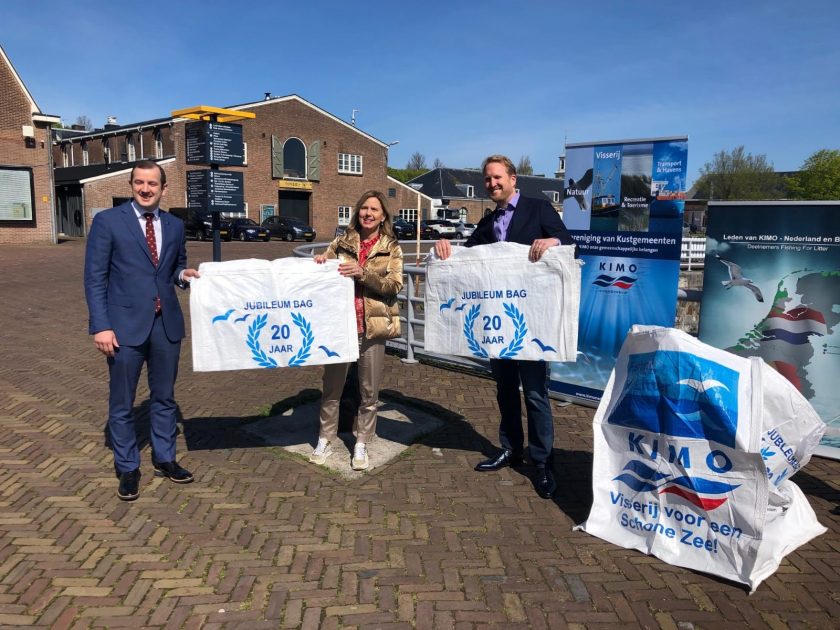
Dutch Fishing for Litter scheme celebrates 20 years of cleaner seas
The Fishing for Litter Scheme, once started as a small local initiative of three Dutch ports, celebrated its 20th anniversary on 21 May 2021. Coming full circle, the celebrations took place in the city where it started.
In 2016 the Fishing for Litter scheme was adopted by OSPAR and included in its Regional Action Plan. Next, in 2019, it was included as “passively fished waste” in the new European Port Reception Facility Directive. As of 2022 this Directive will come into force nationally and will apply to all EU coastal Member States.
As part of the celebration a newly designed anniversary ‘Big Bag’ was presented in a symbolic act to mark Fishing for Litter’s history and its enduring success. During the EU Maritime Days, KIMO Netherlands and Belgium’s president, Sebastian Dinjens, and executive secretary, Mike Mannaart, passed the special edition ‘Big Bag’ from the local level to national level by handing it to Dutch Minister of Infrastructure and Water Management Cora van Nieuwenhuizen. Next, it was passed to the EU level, represented by EU Commissioner for Environment, Oceans and Fisheries: Virginijus Sinkevičius. Both politicians praised the importance and impact of the scheme.
Fishing for Litter’s success is made possible because of the joint efforts of fishers, ports, waste collectors and local, regional and national authorities. The scheme currently operates in 9 EU Member States already, and more countries will be joining shortly. Happy anniversary to ‘Fishing for Litter’ and hearty congratulations to KIMO Netherlands and Belgium.
Source: FishingForLitter
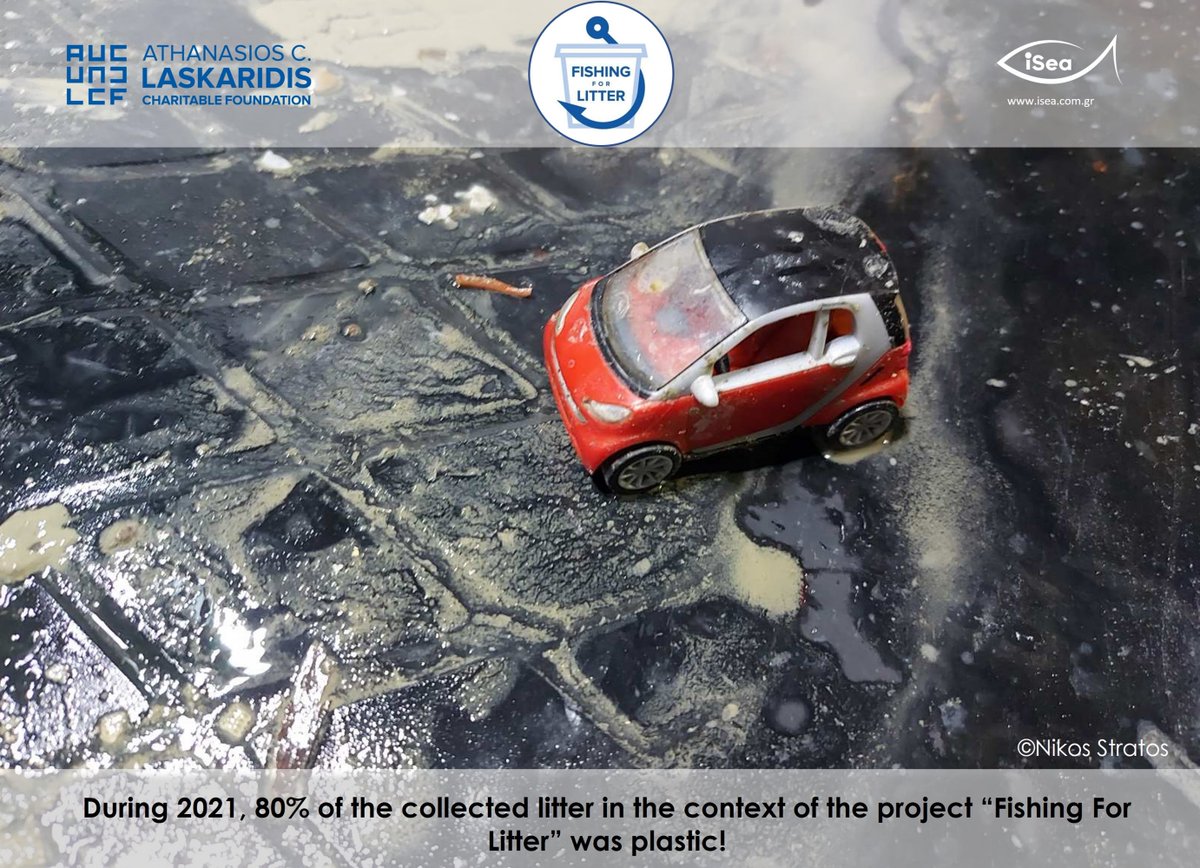
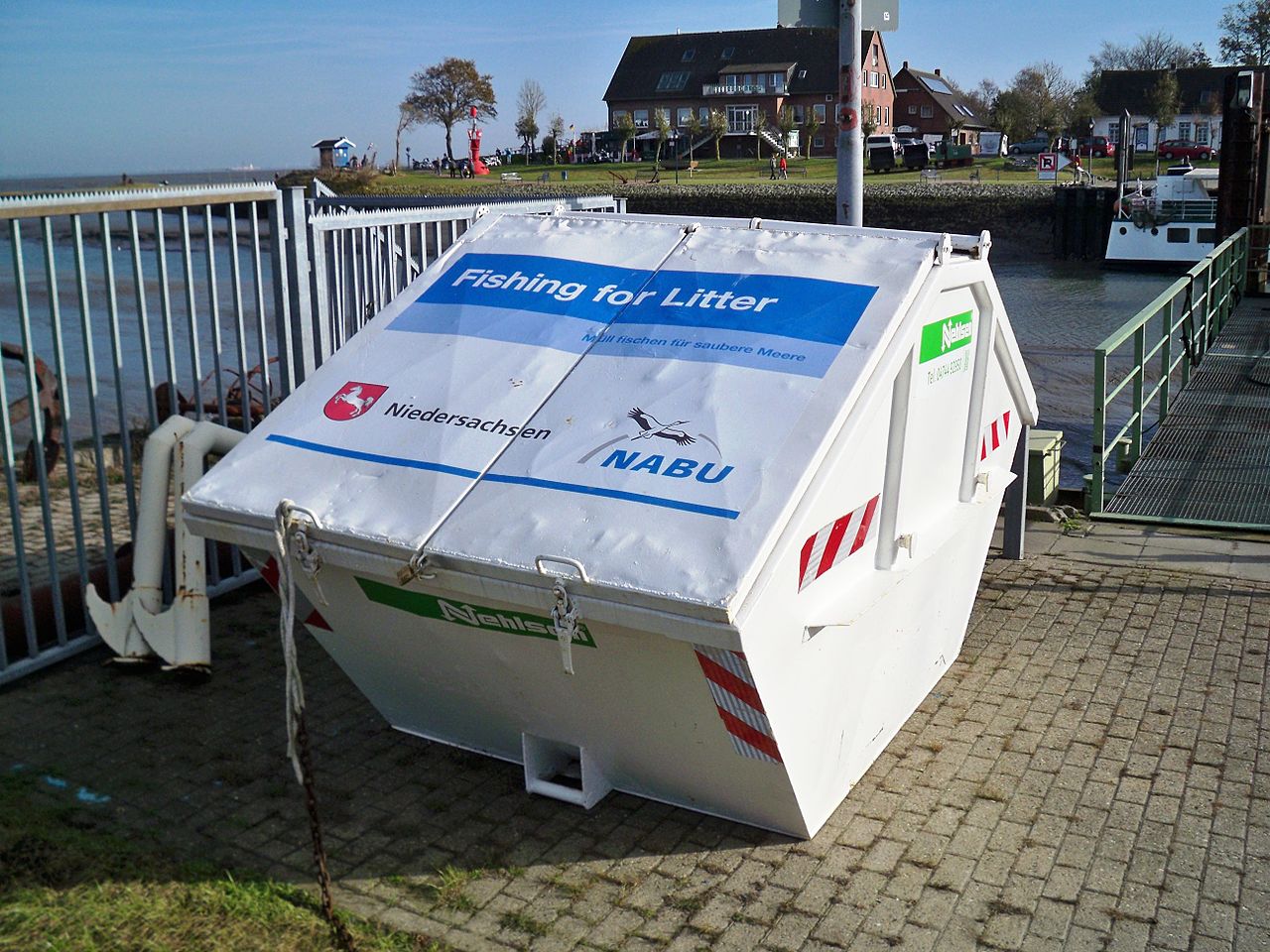
Fishing for Litter is expanding across Europe: Participation is open to all ports and fishing boats
In 2004 KIMO International started a simple yet imaginative project to tackle the problem of marine litter. Fishing for Litter aims to reduce marine litter by involving one of the key stakeholders, the fishing industry.
Fishing boats are given big bags to collect the plastics, ghost gear and other debris that gathers in their nets during normal fishing activities. When the fishing boats come into port, they can unload the bags of litter. These bags are collected regularly and the rubbish is recycled or disposed of on land.
All the fishers who participate in the project are volunteers. On a daily basis, they are out at sea removing rubbish from the ocean. The initiative not only removes rubbish from the sea, it also raises awareness among fishers of the impact of marine litter and changes fishers’ waste-related behaviours while out at sea.
It is recognised by large international marine protection bodies including the European Commission (which highlights it as best practice), the United Nations Environment Programme Mediterranean Action Plan (for the Barcelona Regional Sea Convention) and the OSPAR Regional Sea Convention, which actively encourages Contracting Parties to adopt similar schemes in their countries.
Fishing for Litter is expanding across Europe. Participation is open to all ports and fishing vessels.
KIMO is a network of local governments, working together for healthy seas, clean beaches, and thriving coastal communities.
With over 80 member municipalities in eight countries, KIMO represents more than six million citizens in Europe.
Source: FishingForLitter
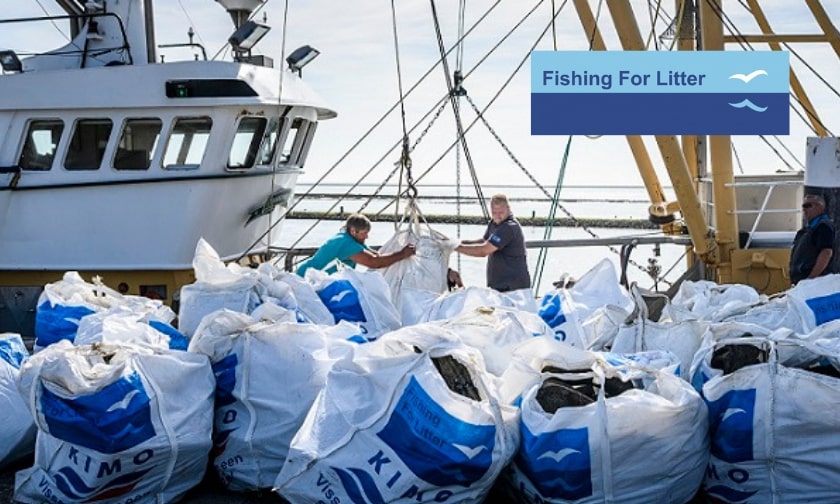
One Spanish fashion brand is making clothing from plastic caught by fishermen
Ecoalf arose from one man’s frustration with the excessive use of the world’s natural resources and the amount of waste produced by industrialised countries.
ECOALF is a sustainable fashion brand whose objective is to reduce the negative impact of the fashion industry and the indiscriminate use of natural resources through different innovative and sustainable processes.
They say their end goal is to create a new generation of responsible products with a level of quality and design to match the best in the market.
Their ingenious use of upcycled raw materials ranges from ocean plastic and old tyres to, believe it or not, coffee grounds! Read more about ECOALF and upcycling in Spain here.

